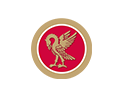Why Study Mathematics?
Confidence with maths and numeracy are hugely important and, in the maths department at King’s Hall, we believe it is crucial that every child is given the opportunity to become a confident, numerate learner.
Whilst we place great emphasis on stretching the more able, we also recognise that some children find maths tricky. As teachers, our challenge is to make maths fun and accessible, and to provide an atmosphere in which our pupils feel comfortable with their learning, and can grow in confidence as they develop their knowledge and skills.
Collaborative Approach
The key factor in achieving these aims is to ensure that every child is working at the correct level and is ‘appropriately challenged’. As such, group work is a strong feature of our maths classrooms in the lower part of the school, then from the age of nine, children are carefully and flexibly set according to their ability. They relish working together, learn a great deal from each other in and out of the classroom, and enjoy discovering the myriad of patterns that are inextricably linked within the subject.
A Piece of Pi
The department also recognises that, regardless of natural ability, children learn maths in different ways. We therefore place great importance on different creative strategies when planning and teaching that take into account different learning styles. For example, fractions is a topic which can cause trepidation; but not when a chocolate cake is baked and cut into halves, quarters and eighths. The idea of equivalent fractions is then easily gobbled up.
There is also a strong belief that maths is more enjoyable and better understood when it is related to ‘real life’ and problems are set in appropriate and relevant contexts. This also extends to linking with other subjects and taking maths outside the classroom. Pupils begin to realise that the wonderful, amazing world of maths is actually all around them and not confined to the four walls of the teaching room.

